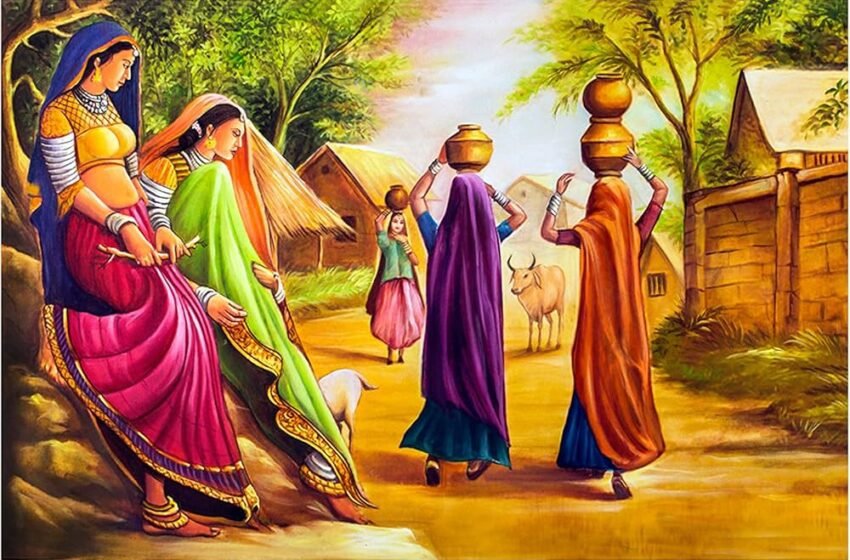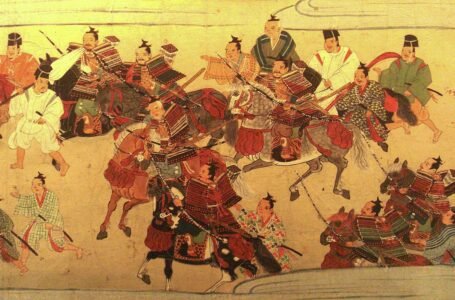Panihari: Pani Kholare Charitan: Folksongs From Rajasthan’s Water Carriers

Panihari, a prime cultural invention of Rajasthan reflects the traditional songs sung by women while accessing water from wells/ rivers/ lakes etc. These songs are social recitations of the everyday activities, affection, passion, and hardship of the people inhabiting this dry countryside. The very term ‘Panihari’ is derived from Hindi word Pani means water and Hary means bearer or carrier. Combined it represents the water bearers who were women who provided not only water to their households but the hearts, minds and souls of their communities.
These songs contained women’s happiness, pain, dreams and expectations and indeed, their personal lives were integrated into their songs to reflect the land and its struggles. Unfortunately, this rather sweet tradition is slowly disappearing mainly because of modern approaches to water supplies as well as shifting leisurely customs.
Why is it Called Panihari?
The term itself ‘Panihari’ denotes the identity as well as the working profile of the Rajasthani women who were meant to fetch water from distant streams and river sources. As in the case of many dynasty systems, the gathering of water as a dignified task has also been a regular practice and requirement of daily life, especially located in the Thar Desert region of Rajasthan in the north west of India where water has always been scarce. Women would fetch water from the village well or the nearby lake, carrying clay containers on their heads and then walking long distances sometimes in the mid- afternoon sun.
Essential to women’s daily survival this act of water fetching overlaid itself into a unified process thus nurturing togetherness. These shows were deemed as relaxation from what they consider as their carrying heavy loads of weight, talking to each other and even uttering the shedding of tears. The music was all in tune with the beats that predominated the life in Rajasthan; that is how the tradition was christened Panihari – after the women who came with vessels on their heads to provide water to the families.
What is the Importance of Panihari?
While Panihari songs are folk songs, they are so much more, as they are true to the essence of the Rajasthan lives. They hold immense historical, cultural, and emotional significance:
- Preservation of Oral Tradition: These songs are the documents of the lived realities of people of Rajasthan from their generation. Those are stories of love, desire and suffering, stories of hope and strength that every mother tells her daughter.
- Expression of Emotions: Panihari songs were an opportunity for women to express their deepest emotions which were restricted in men dominating society. With such poetic comparisons they described love, loss, separation, dreaming, and dreaming.
- Cultural Identity: The songs are very much and part of the cultural wealth of Rajasthan to explain the ingenuity of man in response to difficult climates.
- Social Connection: The practice of singing Panihari songs during trips to fetch water created a strong bond for women in the community so they all feel like they are in a group.
- Environmental Context: Most of the times these songs described the need for water amidst the desert and also how much effort goes into getting this natural resource.
How did Panihari Cult become forgotten?
The decline of Panihari songs can be attributed to several factors, primarily rooted in modernization and changing social structures:
- Introduction of Modern Water Systems: These have made it possible for head pumps and piped water supply systems for villages; this has lowered water fetching distances. Even though this development has helped to reduce physical strain among women it has also severed the structured social occasion which nurtured Panihari singing.
- Urbanization and Migration: Over time, with so much development and migration to urban areas in quest for better livelihoods, most of these practices have disappeared or are in the process of being phased out, as are the Panihari songs.
- Changing Lifestyles: Modern entertainment including television, and mobilephones have deemed people lose touch with traditional art. Older generations had an interest in learning or conserving these songs Young generations are indifferent to such songs.
- Lack of Documentation: As a result of its being an orally transmitted music, no tangible account of Panihari songs existed, nor serious attempts made to document them before their complete disappearance.
- Erosion of Traditional Roles: In the transition of women to society where they are educated and employed, the relation of women to water and the songs have reduced drastically.
It is often questioned and cared that who were the pioneers of Panihari songs?
Although Panihari songs were a collective cultural expression, certain individuals and communities have played a pivotal role in preserving and promoting this tradition:
- Rajasthani Women : The original pioneers of the songs are in fact the rural women of Panihari who gave birth to these songs and nourished them over the ages. These are the things that are so creative, hardworking, and touched to the heart of this particular arts.
- Folk Artists: Some of the Panihari Folk melodies are still in use today with the Manganiyars and Langas who blend them with the Panihari Folk singers copying and performing at the multicultural festivities.
- Cultural Preservationists: Over the years, ethnographers, musicologists, and also music performers, as well as folk and culture preservation organizations have problematized the Panihari songs and presented them to world audiences.
- Modern Interpreters: Though Panihari continues to be composed new generation artists and filmmakers have used this composition in their creations in order to ensure that the tradition remains fairly popular in the present world.
- Support for Folk Artists : The government and institutions should finance folk artists and show them encouragement to develop their work and share it with following generations.
Conclusion
Panihari; the songs of grace; joy; sorrow; and water bearers of Rajasthan are a true representation of culture, feelings and concern of nature. While people today no longer hear such songs, they are a wonderful example of the cultural developments of Rajasthani women. That said, while the Indonesian nation begins to modernize, one should not deny the importance of cultural values for the Indonesian society.
The attempt to bring back Panihari is not just about revival of tradition but embracing of identity of a community who saw aesthetics in the mundane and joy in the basics of existence. By joining hands, we remain committed to the melodies of Panihari and the essence about us more importantly, the relations between humans and the world around them .


